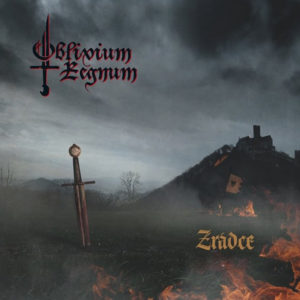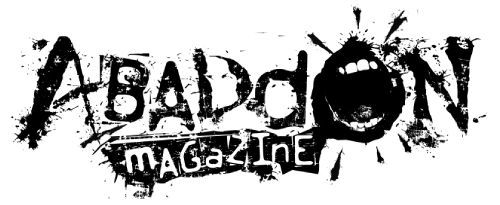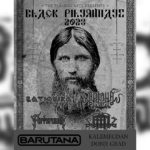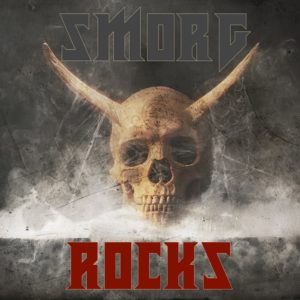 Label: Self released
Label: Self released
Date: February 1st, 2023
These guys are handing out lessons left and right. First of all, lessons about handling the promotional work. As this CD was self-released, the boys had no help from a label or a related PR agency. Shipping out CDs on their own is a feat rarely seen nowadays. Especially one that comes with a promotional sheet so carefully presented. Seeing how the lyrics are not printed in the booklet, nor would they help me greatly since Oblivium Regnum uses their native, Czech language, they printed the concept for the lyrics. In Czech for the booklet, but the promo sheet includes the English version. As hard as it surely is to grasp, this is another rare occurrence for bands, even if they utilize a concept or a historical frame as an inspiration. This quintet gave me all I needed, including a biography, useful links and a signed liner note. Much appreciated guys!
Second of all, and I’ve sort of revealed this one above, Oblivium Regnum gave me a history lesson. It’s not like it is hard to get me hooked on history. My relation with the science in question is well known and documented. The particular piece of Czech history was somewhat obscure for me, though I have visited the country and learned a bit while there, especially at Karlštejn Castle which I can recommend as a must see while anywhere in Czech Republic. I guess the first victory the Czechs achieved with “Zrádce” is that they made me look further. Particularly with the fourth track which introduces the origin of Austro-Hungarian alliance. The first two make for the origin of Bohemian Kingdom, with the significant moments of Přemyslid dynasty which turned from dukes to kings in the midst of medieval Europe. The third song actually deals with how the first Bohemian king came to power with valorous aid in battle to the failing Holy Roman Emperor at the time. I got so captivated in these stories that I managed to forget I also need to listen to the CD in order to properly judge Oblivium Regnum.
Concluding this introduction, these stories might be confusing if you’re not all that interested in history, especially since Middle Age in Europe was pretty chaotic. However, Bohemia, nowadays Czech Republic, was situated in the center of it all. Geographically first and foremost, and stemming from it, also politically. In that regard, “Zrádce” is just a glimpse into all that turbulence. Still, this is only the debut four track EP by Oblivium Regnum, so I hope further lessons will come in the near future.
And now let me play some music. I must say I find this quintet very theatrical. Take the first track, for instance. Its title is “Břetislav a Jitka” and its story revolves around the son of Czech duke and his aspiration to wed the sister of the German Emperor. In order to achieve it, he needs to abduct her from a convent. So, almost an operatic libretto is underlined with music that includes a church choir (the band actually acquired a choir called Cantabundus for the task), male and female voice. The other three tracks on the EP also follow the similar dramatic path, though less obvious without female characters or church backgrounds. In these songs, the band achieves the epic monumentality with fairly pure cohesion between melodic death metal, traditional doom and traces of black metal. Not unlike their countrymen Panychida, Oblivium Regnum creates a medieval atmosphere by using nothing but traditional heavy metal instruments. Slipping in an almost undiscernible folkish influence (I wouldn’t find it either have I not learned where to look with Panychida) makes the listening session tied with the period and location of these tales.
Naturally, Oblivium Regnum doesn’t aim for massive radio hits and you can forget about a hymnic choruses. The band strives for the weight and heaviness in order to portray the grandeur of battle, while the furious black metal crescendo in “Homburg” depicts the grueling part of it. Czechs are skillfully using different metal weaponry in order to get the picture across. If the themes were connected tighter, we could perhaps even discuss a melodic death metal opera. Such is the impact of “Zrádce”. With varying vocals, including a couple of guests, obligatory sampling, flowing arrangements and a production that grants a magnitude of audio experience, it is like an attempt at “The Ring of Nibelung”, though at a much more modest scale than what Mr. Wagner had in mind.
Still, “Zrádce” remains an impressive introduction into Oblivium Regnum and Czech history. I, for one, am looking forward to lesson number two.






